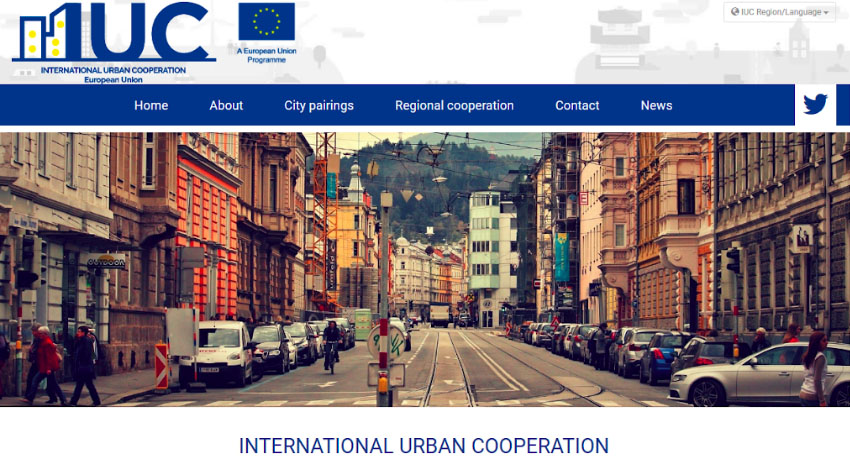 Funded by the European Union, the International Urban Cooperation (IUC) programme activities support the achievement of bilateral policy objectives, as well as major international agreements on urban development and climate change, such as the Urban Agenda, the Sustainable Development Goals, and the Paris Agreement.
Funded by the European Union, the International Urban Cooperation (IUC) programme activities support the achievement of bilateral policy objectives, as well as major international agreements on urban development and climate change, such as the Urban Agenda, the Sustainable Development Goals, and the Paris Agreement.
The IUC programme engages with major international financial institutions and partners to link city decision-makers with potential funders. EU business will be an important partner for activities under the components on sustainable urban development and innovation cooperation for local and regional development. Target countries include China, India, Japan, Canada, Mexico, USA, Argentina, Brazil, Chile, Colombia and Peru.
For component 2, South Korea, Vietnam, Indonesia, Malaysia, Singapore and all countries in Latin America and the Caribbean (LAC) region are included in the programme. The three main activities of the IUC Program are the following:
- City-to-city cooperation on sustainable urban development: city pairs will be supported in their efforts to design, implement and manage sustainable urban practices in an integrated and participative way.
- Sub-national action under the Global Covenant of Mayors initiative: cities and other sub-national authorities will be encouraged to join a regional/national covenant of mayors initiative which forms part of a global initiative to tackle climate change challenges focused on mitigation, adaptation and universal access to energy.
- Inter-regional cooperation on innovation for local and regional development: improve and internationalise regional innovation and cooperation in and between the EU on one hand and Latin America and the Caribbean on the other.
In this occasion, we hosted the visit of Gianluca Fabbri, who has deep experience in the technical and administrative coordination of EU, National and International Projects and in the coordination and preparation of proposal submissions providing strategic and technical advice and assistance to the development and management of cofunded EU programs.
Now, involved with IUC Program, is conducting a study together with other EU and Chinese experts about how EU cities have addressed the challenge of transitioning towards a low-carbon development model, including the role of the EU Covenant of Mayors and the Sustainable Energy and Climate Action Plan (SECAP). This study will then be presented in various occasions in China and in Europe.
For that, they selected some significative EU cities that have to visit in order to analyze how they have managed this transition towards a low-carbon development model, underlining the role of SECAPs or SECAP-like planning tools. And highlighting how the EU examples are deemed potentially useful for Chinese cities with similar characteristics (selected in terms of e.g. similar industrial structure or geographical position…).
One of this selected city is Bilbao, as example of excellence, so we had the chance to show him around the city some of the best urban practices and solutions developed in the city.

Recent Comments